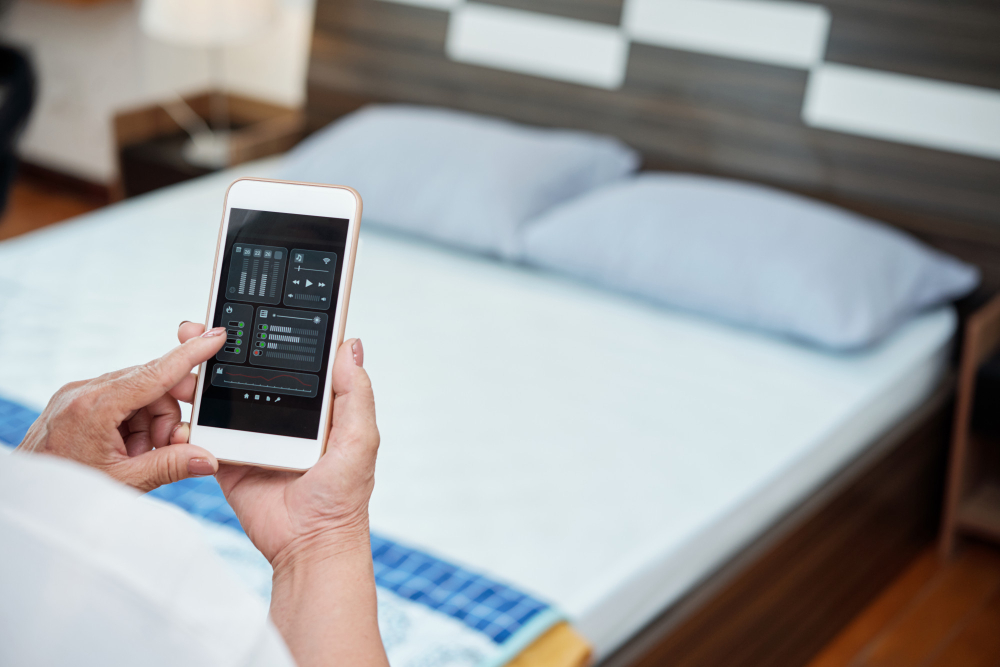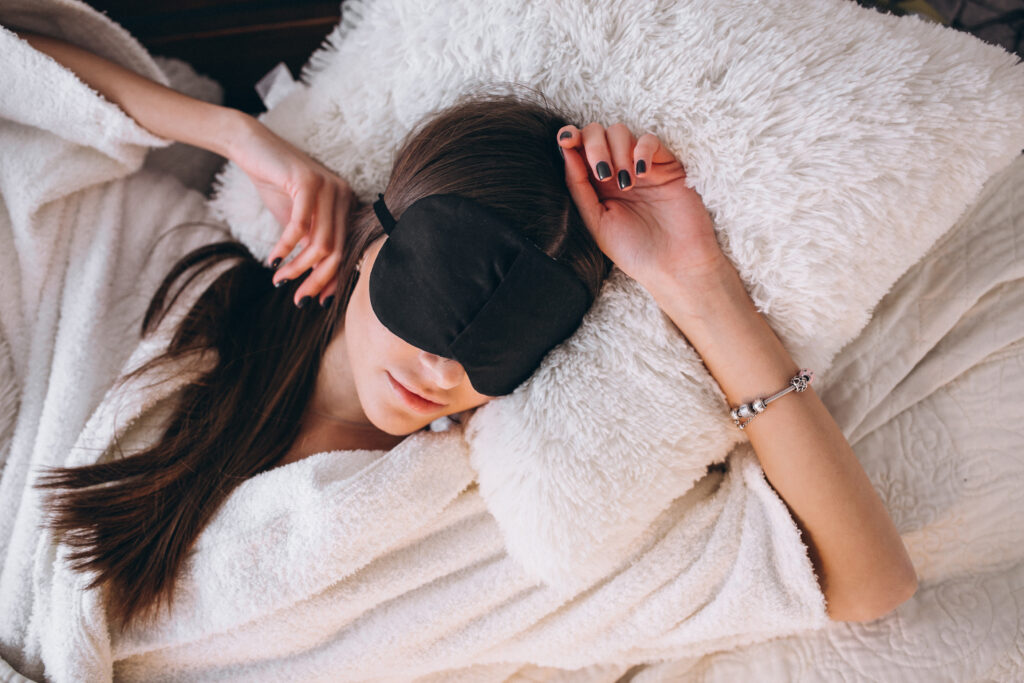A study indicated that although getting enough sleep is linked to improved mental health, it has no effect on a person’s coping mechanisms for stress. Picture courtesy of Stocksy/Studio Firma.
Anxiety and sadness are two mental diseases that might be made more likely by prolonged stress.
According to the findings of a recent study, sleep and adaptive emotion regulation techniques are important in lowering the risk of anxiety and depression in individuals who are under a lot of chronic stress.
This study made use of the COVID-19 pandemic, which caused a great deal of ongoing stress in people. Regardless of the cause, chronic stress management is essential.
A period of prolonged stress was experienced by many individuals because to the unusual circumstances created by the COVID-19 epidemic. Researchers are trying to figure out what causes mental health to improve and how these extended periods of chronic stress impact mental illness.
An investigation into the relationship between adaptive emotion regulation techniques, often known as positive coping strategies, and sleep quality and anxiety and depression rates was published in the journal Cortex.
Both elements are beneficial in lowering rates of anxiety and depression, according to the authors’ research. Contrary to what they had predicted, they discovered that sleep quality had no bearing on how well emotion management techniques worked.
What part does the quality of sleep play?

This research was a secondary analysis of sleep and mental health data gathered from spring through fall of 2020 during the COVID-19 pandemic.
Finding out whether adaptive emotion management techniques are linked to improved mental health was the study’s top goal.
Long-term mental health can be enhanced by cognitive processes known as adaptive cognitive emotion management techniques. One illustration would be the process of “positive reappraisal,” which is the search for the good in a circumstance or event.
Second, they sought to determine whether the quality of sleep affected the efficacy of adaptive emotion management techniques. They examined these variables in light of “the COVID-19 pandemic, a naturally-occurring and chronic stressor.”
To Medical News Today, co-author of the study Emma Sullivan outlined the main objectives of the investigation:
During the COVID-19 pandemic, our first area of enquiry was whether using positive coping methods more frequently would be linked to a decrease in symptoms of anxiety and sadness. Second, we wanted to know if being able to get high-quality sleep was necessary for the advantages of adopting positive coping skills to lessen feelings of anxiety and sadness. This is due to research linking good sleep quality to the application of constructive coping mechanisms as well as symptoms of anxiety and depression.
Strategies for emotional management are crucial.

There were 1,600 adult participants in the study. Through the use of online forms, the participants supplied crucial demographic data. Additionally, they answered questionnaires that gathered information about generalised anxiety, depression, and techniques for managing emotions.
Based on data analysis, the researchers discovered that lower anxiety and depression ratings were linked to greater usage of adaptive cognitive emotion management techniques.
They also discovered a correlation between lower anxiety and depression scores and reports of better-quality sleep.
They discovered that those who reported getting better sleep also used more adaptive cognitive emotion regulation techniques. This finding pertained to the association between adaptive cognitive emotion regulation techniques and sleep quality.
Adopting adaptive cognitive emotion regulation strategies did not significantly predict anxiety outcomes, according to their final model that took sleep quality into consideration.
Put another way, there seems to be no correlation between a person’s sleep quality and the efficacy of positive coping strategies in lowering anxiety and sadness. Regardless of the quality of sleep, the positive regulation strategies continued to demonstrate benefits for mental health.
Sullivan gave MNT an explanation of the nuances of these findings:
Indeed, we discovered that utilising constructive coping mechanisms more frequently was linked to a decrease in symptoms of anxiety and despair. Additionally, less symptoms of anxiety and despair were linked to higher-quality sleep. Nevertheless, contrary to our expectations, adopting healthy coping mechanisms to lessen the symptoms of anxiety and sadness did not require getting high-quality sleep.
Results are not as shocking as they first appear
Dr. Lindsay Oberleitner, education director at SimplePractice and licenced clinical psychologist, provided commentary to MNT regarding the study’s findings. She was not engaged in the research.
She informed us that, “interestingly, cognitive emotion regulation techniques and sleep quality didn’t work together in their relationship to depression and anxiety as was expected.”
She did, however, point out that this might not be as shocking as it would initially appear.
This might not come as a huge surprise if we take a step back from the current investigation. It is well known that a variety of intricate aspects affect how each person experiences anxiety and despair. Aspects of physical health such as sleep have an impact on mental health, and emotion regulation techniques encompass more than just adaptive cognitive processes.
- Lindsay Oberleitner, M.D.
Study constraints and more investigation
Even so, it is important to recognise the limits of this research. Participants’ self-reporting, which isn’t often reliable, was used by researchers.
They point out that reports of sleep quality are frequently lower than actual measurements. They were unable to assess any changes that might have happened during the course of the trial since they were only able to examine the adaptive cognitive emotion management approach and sleep quality once.
Additionally, the authors’ data on sadness was larger than their data on anxiety. There was not enough power in the study to measure any minor possible interaction effects.

They were unable to investigate the relationship between sleep quality and the most effective cognitive emotion control method or combination thereof due to the limitations of the measurements they utilised.
Higher educated white females in the United States were the study’s primary participants. Data was gathered online, therefore specific variables could not be taken into account. The study’s findings can only be broadly interpreted because of all these limitations, which also point to the necessity for more varied future research.
Finally, the authors of the study note that because the COVID-19 pandemic offered a distinct source of stress, it is challenging to relate the results of this study to those of other extended stressors and the ensuing effects on mental health.
Future studies, according to Sullivan, could examine other sources of stress.
She told MNT, “It would be good to replicate these findings in the face of other long-term stressful events, as the COVID-19 pandemic was obviously a unique stressful situation.”
Additionally, she continued, “because we examined a variety of constructive coping mechanisms, it might be crucial to investigate in the future the relationships between particular mechanisms and symptoms of depression and anxiety as well as sleep quality. Examples of these include positive reappraisal, which involves reevaluating the circumstances in a constructive manner, and putting things into perspective, which entails considering the big picture.”
Strategies for coping with ongoing stress
Whatever the causes of stress, managing stress requires action.A reliable source is essential for mental wellness. This could entail adopting healthy lifestyle practices, asking friends for support, and knowing when to get professional mental health assistance.


